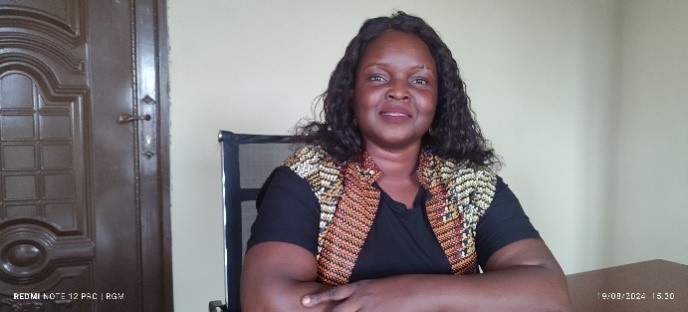Grace John Kenyi was removed from a WhatsApp group for asking a simple question: Why was a man old enough to have children leading South Sudan’s youth?
“There is no such thing as a ‘senior youth,’” says Kenyi, 35, a journalist-turned-activist. “If you’re above the age of 35, support young people instead of taking their space.”
South Sudan doesn’t have a legally defined age for youth. However, many organizations and documents use 15-35 years old as the age bracket for youth. The draft National Youth Policy also defines youth as being between 18 and 35 years old.
Her challenge to older leaders reflects her broader fight for gender equality and youth representation in a country where both groups struggle for a voice.
Now working with a local NGO on peace and security, Kenyi juggles activism, entrepreneurship, and motherhood—proof, she says, that women need not be confined by stereotypes.
“Money is in the market,” says Kenyi, who sells honey, shoes, and other goods alongside her advocacy work. “I don’t believe only in white-collar jobs.”
Her resilience was forged early. She became a mother during her first year at the University of Juba but returned to earn multiple degrees while working as a radio presenter. When civil war erupted in 2013, shrinking civic freedoms, she left journalism for grassroots activism.
“The media limited me,” she says. “I needed direct engagement.”
Today, she mentors young women through her NGO, the Community Initiative Development Association, and pushes back against harassment and threats—common risks for female activists in South Sudan.
She recalls facing backlash for opposing a contentious government plan to create 28 states, which critics said fueled conflict.
Her advice to women? Break the silence.
“We must recognize our potential. Nothing truly separates boys from girls,” Kenyi says. “Wherever you are, raise your voice—for your rights, your children’s rights. Stand up.”




